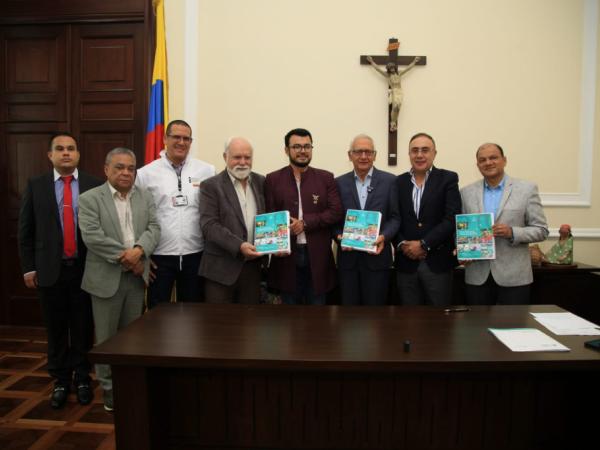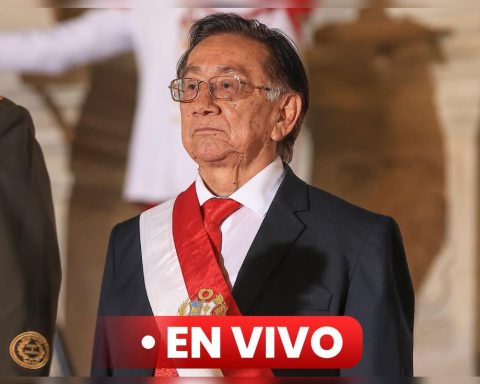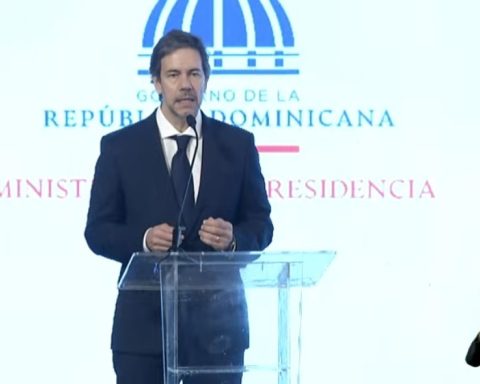He National Governmentthrough the Ministry of Health and Social Protectionfiled this Friday the New draft of the national health system reform.
“We want to build health without barriers, where every citizen, regardless of their location or socioeconomic status, can access quality services.“, he said Minister Guillermo Alfonso Jaramillo.
The head of the portfolio also highlighted: “This bill reflects a broad consensus process. We have taken into account and addressed the comments of all parties involved in order to achieve a comprehensive and effective reform.”.
(You can read: These are the three pillars of the Petro government’s financing law).
New text of the health reform
Ministry of Health and Social Protection
The Government explained that the reform will continue to be based on the primary health care model, as well as on the elimination of economic, geographical and administrative barriers that “have limited“access to health services.
“The reform will implement a territorial and differential approach, establishing integrated service networks that will ensure primary care coverage throughout the country. Primary Health Care Centers (CAPs) and Territorial Health Teams will be on the front line, providing care close to communities, reducing inequalities and responding effectively to local needs.“, the portfolio assures.
(You may be interested in: Superservicios intervened in the energy company Air-e: what comes next?).
The reform also proposes giving total administration of the resources allocated to the system to the Health Resources Administrator (Adres) to the country’s hospital and clinic networks, “eliminating intermediaries“.

Health
iStock
Likewise, it remains firm in the transformation of the health promoting entities (EPS) to the calls Health and Life Managerswith the aim of adjusting coordination and efficiency in the provision of services.
(Further: ‘We don’t see any concrete measures’: Comptroller’s Office on energy crisis in the Caribbean).
“With a comprehensive and participatory approach, this reform will allow the Colombian health system to evolve in accordance with the country’s social and economic challenges.“, the Ministry points out.
How much would it cost the country?
On the issue of costs, the Treasurybased on data collected from the Ministry of Health and Adres, developed a concept detailing the projections of the use of resources that the reform would need for its operation, if it is approved as filed.
According to the portfolio headed by Ricardo Bonilla, For next year, the reform is expected to cost around 99.6 billion pesos by 2024taking into account the direct expenses ($97.4 billion), the indirect ($1.8 trillion) and those of management ($450 billion). In fact, the calculation made by the Treasury expects a negative differential of less than $1 billion.
“In this regard, and as set out in this document, the estimated fiscal impact of the draft law on the matter can be incorporated in a manner compatible with the Medium-Term Fiscal Framework.“, the portfolio mentions.

Health reform
In its view, the Treasury projected what the reform would cost over the next 10 years, that is, until 2034, the year in which the system is expected to require 148.864 billion pesos in 2024This amount would include resources for direct expenses ($144.6 billion), indirect expenses ($1 billion) and management expenses ($3.1 billion).
For the next 10 years, the use of direct spending that would require the most resources and on an uninterrupted basis would be: Treatment of medium and high complexity diseasessince by 2025 it is expected that it will require $71.9 billionthat is, 72.1% of all spending, while by 2034, the amount would be $94 billionthat is, 63.1% of all spending.
(You can read: Were health sector stakeholders taken into account in the new reform?)
Looking at the object of the Treasury, it can be seen that the direct expenditure divisions that would not have modifications during the next 10 years would be those of institutional strengthening ($100 billion) and the disaster fund ($50 billion).
In the case of resources allocated for the Primary Health Carefor next year would require $18.5 billionthat is, 18.5% of all spending for that year, while for 2034 it would need $36.6 billionthat is, 24.5% of total expenditure.
First resistances
Despite the adjustments introduced in the project, for a group of former ministers and deputy ministers of Health, The changes proposed in the initiative are insufficient to effectively address the critical problems affecting the sustainability and equity of the system.stating that this puts the right to health of millions of Colombians at risk.
In a letter sent to the Minister of Health on September 12, Former officials outlined several key concerns regarding the draft bill.
(Besides: Colombia Without Hunger: how to sign the commitment agreement and what is the deadline).
According to the actors, the proposal lacks a detailed plan for its implementation, including specific goals, timelines and necessary resources and They say this raises doubts about its viability and the real impact it will have on the system..

Patients.
They say the reform does not adequately address the structural financial crisis facing the system.The transitional articles do not present a clear path to protect users from possible increases in access barriers to health services“.
Likewise, the Representative to the House, Andrés Forerowho stated that the filing of the project before the Legislature was done “without the accompaniment of patients, doctors and academics“. The congressman stressed that Minister Jaramillo did not take advantage of the time to listen to the sector and create the new text.
(Read more: Inflation in September in the country could fall to its lowest level since 2021).
“The minister wasted the time he had and did not reach agreements or consensus with the actors in the system and stubbornly insists on the same text with some modifications that has already sunk in the Seventh Commission of the Senate.“, he said.
He also indicated that since the Democratic Center “everything possible will be done”so that this reform that seeks to nationalize the health of Colombians does not go ahead” and added that “At the same time, we are going to demand that the National Government guarantee today the right to health that has been affected by the incompetence of the minister.“.
PORTFOLIO

















